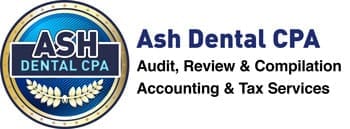Tax Filing for Dentists

Tax Filing for Dentists
Tax Filing for Dentists | Filing for taxes is a delicate task for dentists. The process of filing taxes begins with proper tax planning and preparation.
Let us guide you through the process and see what are the benefits of working with a dental CPA.
Tax Planning for Dentists
A dental CPA is your best option for tax planning. Understanding your industry benchmarks and business needs is critical before tax planning begins.
A dental CPA can help you in deciding key factors that can affect your tax planning for the long term.
Here are a few major tax planning decisions.
Entity Structure
An entity structure has a direct and long-lasting impact on your taxes. A dental CPA can help you understand the pros and cons of different entity types.
For example, whether you should choose an LLC or a C corporation, or an S Corporation as all of these types would offer discrete benefits and risks.
Practice and Profit Planning
A major advantage of working with a dental CPA is to plan for the best practice management policies. In turn, these procedures can work well to ensure better profit planning for your dental practice.
Tax Deductions and Credits
Finding the right tax credits and all available tax deductions is another important aspect of tax planning.
An experienced dental CPA can offer dedicated support when choosing the right tax deductions without risking an IRS penalty for your dental practice.
Retirement Planning
Unlike the common notion, retirement planning must begin as early as possible. All dentists must plan their retirement contribution plans after discussing with an experienced advisor.
Retirement planning would also impact your tax savings in the long run.
Employee Benefits Planning
Employee retirement contributions and other benefits have a major effect on your tax filing as well. The right advice from a dental CPA would help you choose the right type of employee retirement and benefit plans.
Tax Preparation for Dentists
Once you go through the planning process, your dental CPA would work for the tax preparations.
Here is a brief checklist for your tax preparations while working with your dental CPA.
Identify Relevant Business Taxes
You should know and plan for applicable business taxes in time. It will help you save money for all taxes in time without risking late fees and IRS penalties.
Common business taxes include:
- Income tax
- Estimated taxes
- Self-Employment taxes (for self-employed)
- Employment taxes including social security and Medicare
- Excise tax and state taxes wherever applicable
Gather All Tax Forms
You may need several types of tax forms during the year and at the time of filing taxes. It can be a hectic task for a dentist with a busy work schedule anyway.
A dental CPA would help you find and gather all tax forms at the right time.
Set Schedules for Estimated Taxes
Most small businesses need to file estimated taxes. If your dental practice exceeds the threshold of estimated taxes, you’ll need to prepare for them accordingly.
Getting advice on estimated taxes includes financial planning aspects such as short-term budgets and cash flow management to arrange money for estimated taxes in time.
Collect All Tax Documents
Whether you file online taxes, use tax software, or seek help from a dental CPA, you’ll always need supporting documents.
As a dental practice owner, you’ll need to gather business documents, income/expense supporting documents, retirement contributions, and other comprehensive income supporting documents.
Decide For a Tax Filing Extension
If you feel short of time during the busy tax season you can apply for an extension. However, you must consult your dental CPA before deciding.
Tax Filing for Dentists
April 15 is your tax filing deadline every year. If you feel short of time, apply for an extension.
Working closely with your dental CPA can ease your tax filing burden. Even when you have time, do not leave the task till the last moment.
Here is a quick list of your tax filing process.
- Provide last year’s tax returns to your dental CPA
- Provide bank statements, credit card statements, business documents, and other income/expense supporting documents
- Your dental CPA will fill in the relevant tax information on all required tax forms
- Work closely with your dental CPA to research available tax deductions and tax credits
- Keep in mind any regulatory changes like tax relief packages that directly affect your tax returns
- File your tax returns through your dental CPA
- Pay for your taxes including quarterly estimated taxes if applicable
- Get your tax refund
You may need to recheck for a tax refund with the IRS if there are any disputes. Also, in some cases, you may need an IRS representation. This is where a dental CPA will come in handy with the right qualification and skills for your dental practice.
Contact Ash Dental CPA to learn more. New clients are welcome.
